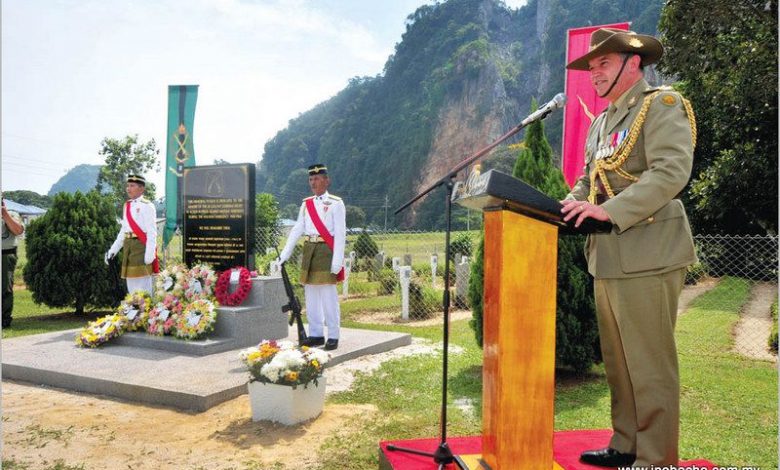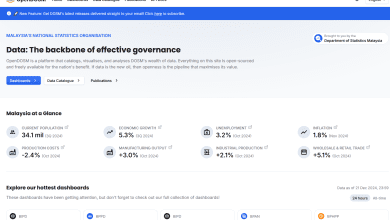

Ipoh’s annual memorial services were held on Friday, June 13 and Saturday, June 14 at the Ipoh Railway Station cenotaph and at Camp Syed Putra, Tambun respectively.
The primary objective of the services is to provide a lasting memory to those brave men and women who had made the ultimate sacrifice in the defence of the country during the First World War (1914 to 1918), Second World War (1939 to 1945), the Malayan Emergency (1948 to 1960) and the Indonesian Confrontation (1962 to 1965).
“Our aim is to impart to future generations of Malaysians the significance of the sacrifices made by those who laid down their lives for the cause of the nation,” said Dato’ Thambipillay Chairman of Wira Association Malaysia, the organiser of the services during his welcoming speech.
The services at the Railway Station cenotaph and the Gurkha cemetery at Camp Syed Putra, Tambun brought together former servicemen local and foreign, High Commissioners of United Kingdom, Australia and New Zealand, Ambassador of Nepal, students and visitors from abroad, especially Australia and New Zealand.
The Ipoh cenotaph, built in 1926, is often dubbed “The Silent Sentinel” due to its looks and disposition. Over at the Gurkha cemetery in Camp Syed Putra, Tambun some 100 graves belonging to Gurkha soldiers and their family members are found. Camp Syed Putra, formerly known as Sulva Lines, was home to a Gurkha battalion during the height of the Malayan Emergency.
Besides these two services, there are two more which are held outside of Ipoh. One is conducted at the Kamunting Christian Cemetery in Taiping. The service here is dedicated to Commonwealth soldiers, including family members, who were killed during the Malayan Emergency (1948 to 1960). There are about 50 graves belonging to Australians, British, New Zealanders and Malaysians. However, the ones who visit the cemetery annually are members of the National Malaya & Borneo Veterans Association Australia. Some of the surviving members of the Australian forces who served in Malaya during the communist insurgency period were present at the remembrance service on Thursday, June 12.
The other is the well-publicised God’s Little Acre in Batu Gajah. The service has been in existence since the 1970s and has grown in stature and prominence each passing year. The organiser is the Perak chapter of the Malaysian Oil Palm Association. This year the Batu Gajah service was held on the morning of Saturday, June 14 preceding the gathering at the Gurkha cemetery at Camp Syed Putra, Tambun.
Ipohites, having known the significance of the occasions and their links to the country’s troubled past, have been supporting the events religiously since their inception. One of them is Dato’ Chan Yew Man who has been sponsoring the annual Troops’ Night held at the Royal Perak Golf Club. The dinner, on the evening of Saturday, June 14, was attended by veterans from Commonwealth countries who served here during the Malayan Emergency and the Indonesian Confrontation.
Dato’ Chan’s consistency in his support is based on his conviction that those who had made the ultimate sacrifices for the country should not only be remembered but also honoured. “That’s the very least we, as peace-loving Ipohites, can do,” he intimated.
Yvette


